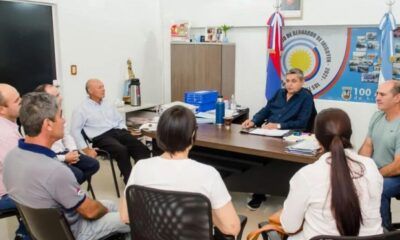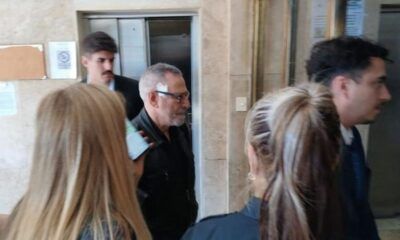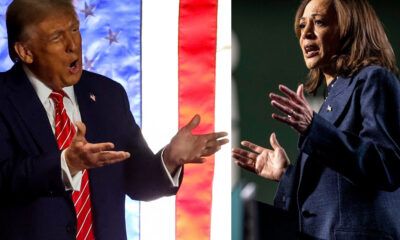INTERNACIONAL
Guatemala swears in Bernardo Arévalo as president despite last-ditch effort to block election results
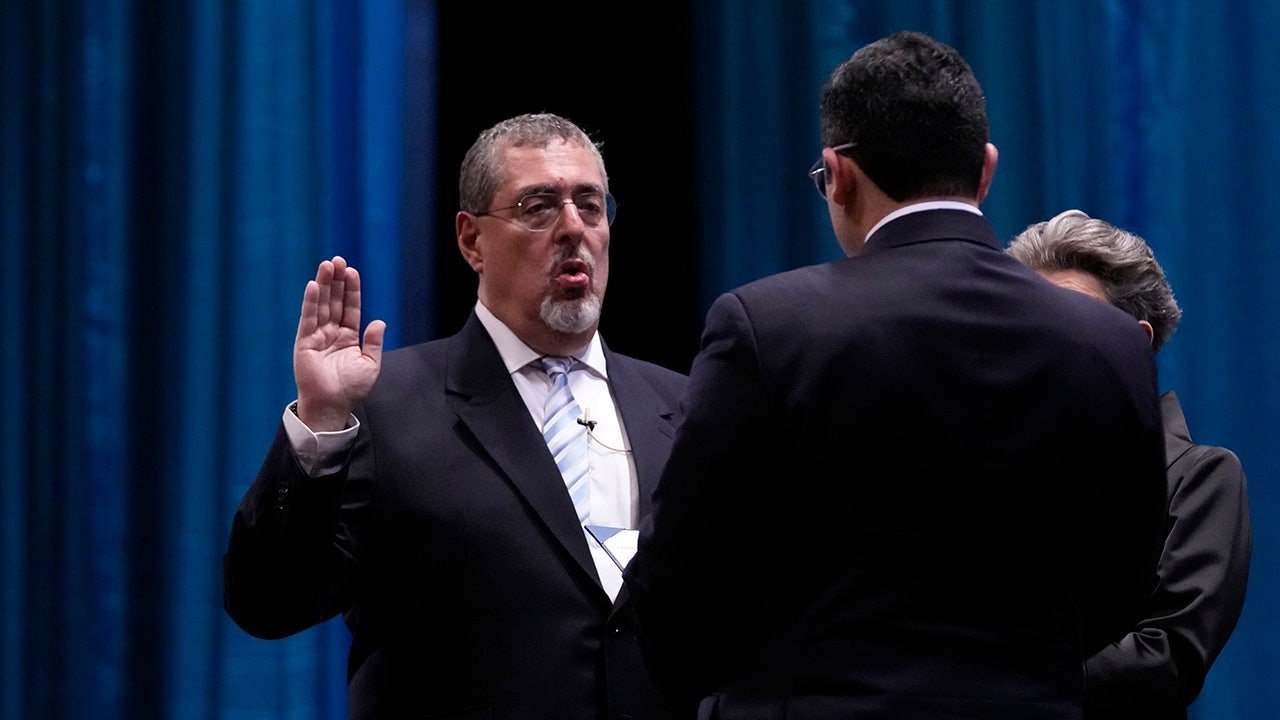
Guatemala on Monday swore in reformist Bernardo Arévalo as president despite Congress’ last minute attempt to delay the inauguration.
«It fills me with deep honor to assume this lofty responsibility, showing that our democracy has the necessary strength to resist and that through unity and trust we can change the political panorama in Guatemala,» Arévalo said in his first address after taking the oath for president just minutes after midnight – some nine hours after his inauguration was scheduled to start.
«Our democracy has the strength to resist and through unity and trust we can transform the political landscape in Guatemala,» he added, according to Reuters.
Arévalo, who won August’s elections by a comfortable margin, replaced conservative politician Alejandro Giammattei as president despite Guatemala Attorney General Consuelo Porras, an ally of Giammattei, having mounted several legal efforts to place Arévalo on trial or in jail before he could take office. Those efforts included attempting to strip Arévalo and his vice president, Vice President Karin Herrera, of legal immunity and trying to suspend Arévalo’s Semilla party and annul the election, Reuters reported.
Arévalo has promised reforms to combat the rising cost of living and violence – billed as the key drivers of migration to the United States. In his inauguration speech, Arévalo demanded for migrants crossing Guatemalan territory «dignity, respect, compassion, in the same way we will demand that Guatemalan migrants are treated abroad.»
FORMER GUATEMALAN INTERIOR MINISTER ARRESTED FOR NOT FORCIBLY REMOVING PROTESTERS
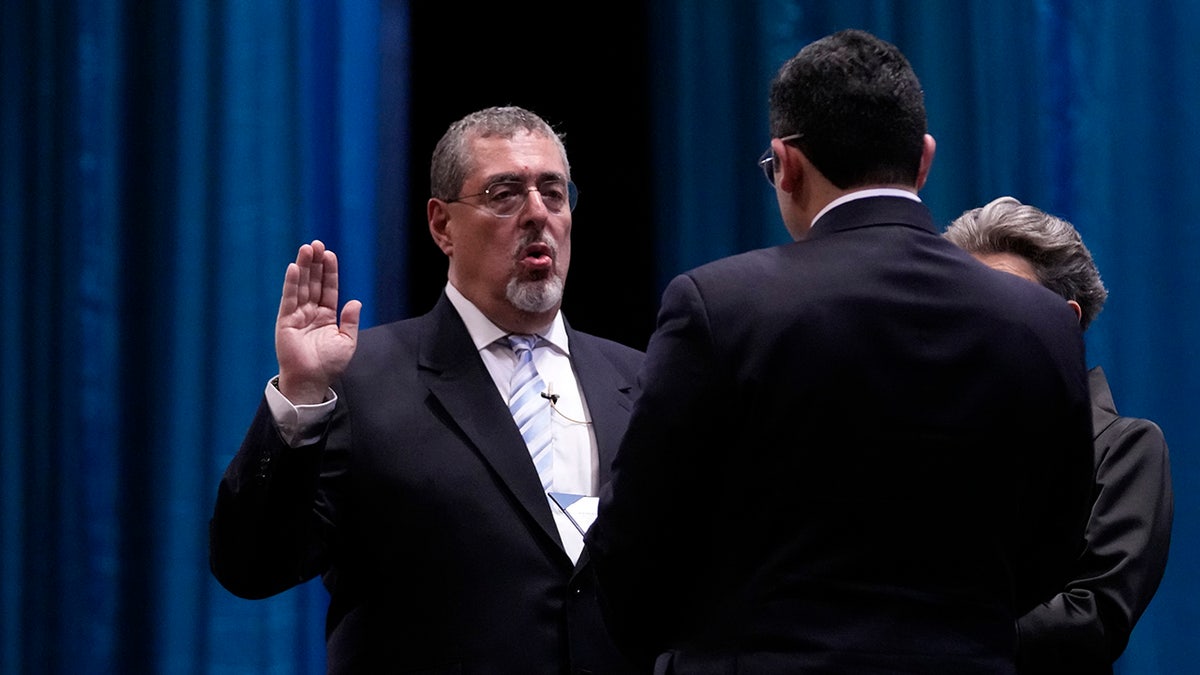
Incoming Guatemalan President Bernardo Arévalo takes the oath of office during his swearing-in ceremony in Guatemala City early Monday, Jan. 15, 2024. (AP Photo/Moises Castillo)
The inauguration was delayed after the Supreme Court of Central America’s most populous nation ruled in favor of permitting opposition lawmakers to maintain their leadership of Congress. The move was seen as diluting the presence of the Semilla Party, which only holds 23 of the 160 seats, by forcing its members to stand as independents, according to Reuters.
Despite hundreds of Arévalo’s supporters clashing with riot police outside Congress Sunday and threatening to storm the building, the inauguration process dragged on for hours before he took the oath of office just past midnight. Supporters had been waiting hours for a festive inauguration celebration in Guatemala City’s emblematic Plaza de la Constitucion and were fed up with yet another delay, sweeping police roughly out of their way before demanding legislators stop delaying and name the delegation that must attend the ceremony.
Congress, which was supposed to attend the inauguration as a special session of the legislature, engaged in bitter infighting over whom to recognize as part of the congressional delegation, as members yelled at each other. The leadership commission tasked with doing that was packed with old-guard opponents of Arévalo, and the delay was seen as a tactic to draw out the inauguration and weaken Arévalo. Yet, prominent Semilla lawmaker Samuel Perez Alvarez was unexpectedly elected as the Congress president, bolstering Arévalo’s authoritiy.
Giammattei, widely criticized for eroding the country’s democratic institutions, ultimately did not attend the inauguration.
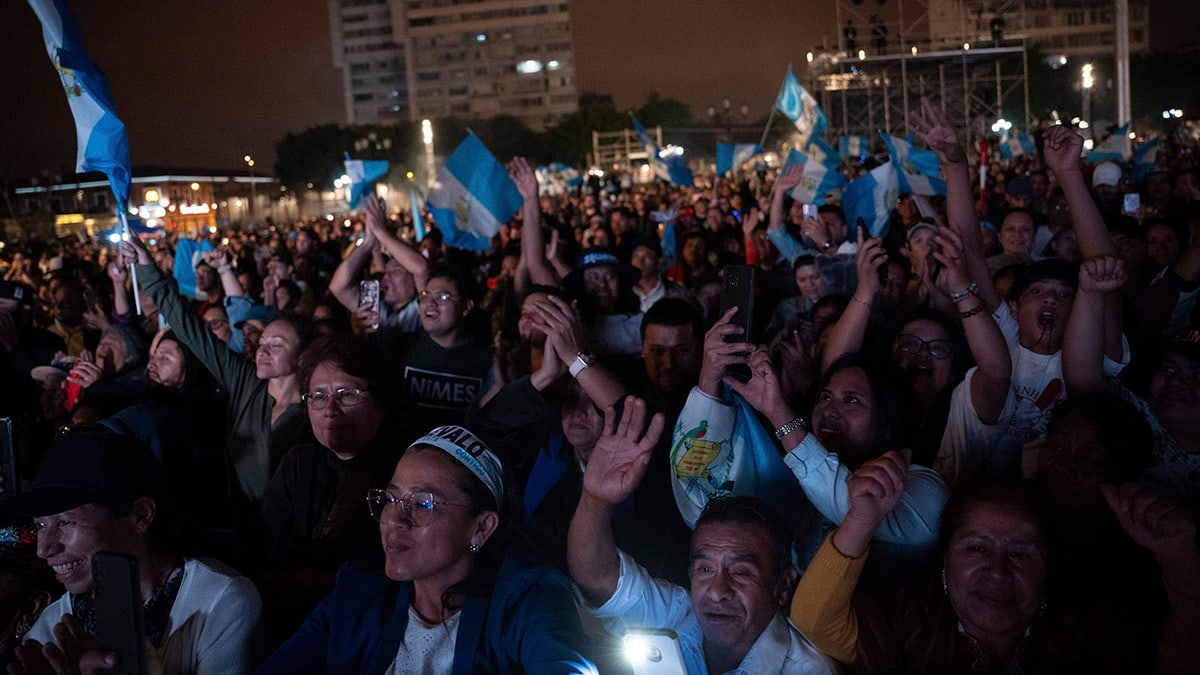
People watch the inauguration ceremony of incoming Guatemalan President Bernardo Arevalo on a screen outside the National Palace in Guatemala City early Monday, Jan. 15, 2024. (AP Photo/ Santiago Billy)
GUATEMALA’S FORMER PRESIDENT RELEASED ON BOND; LEAVES PRISON FOR FIRST TIME SINCE 2015
Arévalo thanked Guatemala’s youth for not losing hope and the country’s Indigenous peoples for their support, acknowledging «historic debts that we must resolve.» He summarized his administration’s guiding principle as, «There cannot be democracy without social justice and social justice cannot prevail without democracy.»

People wait for the delayed swearing-in ceremony for Guatemalan President-elect Bernardo Arevalo at the Miguel Angel Asturias Cultural Center in Guatemala City on Sunday, Jan. 14, 2024. (AP Photo/Moises Castillo)
Thousands of Guatemala’s Indigenous people took to the streets last year to protest and demand that Porras and her prosecutors respect the Aug. 20 vote. Many had called for her resignation, but her term does not end until 2026, and it is not clear whether Arévalo can rid himself of her.
Prosecutors sought to suspend Arévalo’s Seed Movement party — a move that could prevent its legislators from holding leadership positions in Congress — and strip Arévalo of his immunity three times. On Friday, Herrera, announced that the Constitutional Court had granted her an injunction heading off a supposed arrest order. She was also sworn in early Monday.
Prosecutors have alleged that the Seed Movement engaged in misdeeds in collecting signatures to register as a party years earlier, that its leaders encouraged a monthlong occupation of a public university, and that there was fraud in the election. International observers have denied that, according to The Associated Press. One key was that Arévalo got early and strong support from the international community. The European Union, Organization of American States and the U.S. government repeatedly demanded respect for the popular vote.
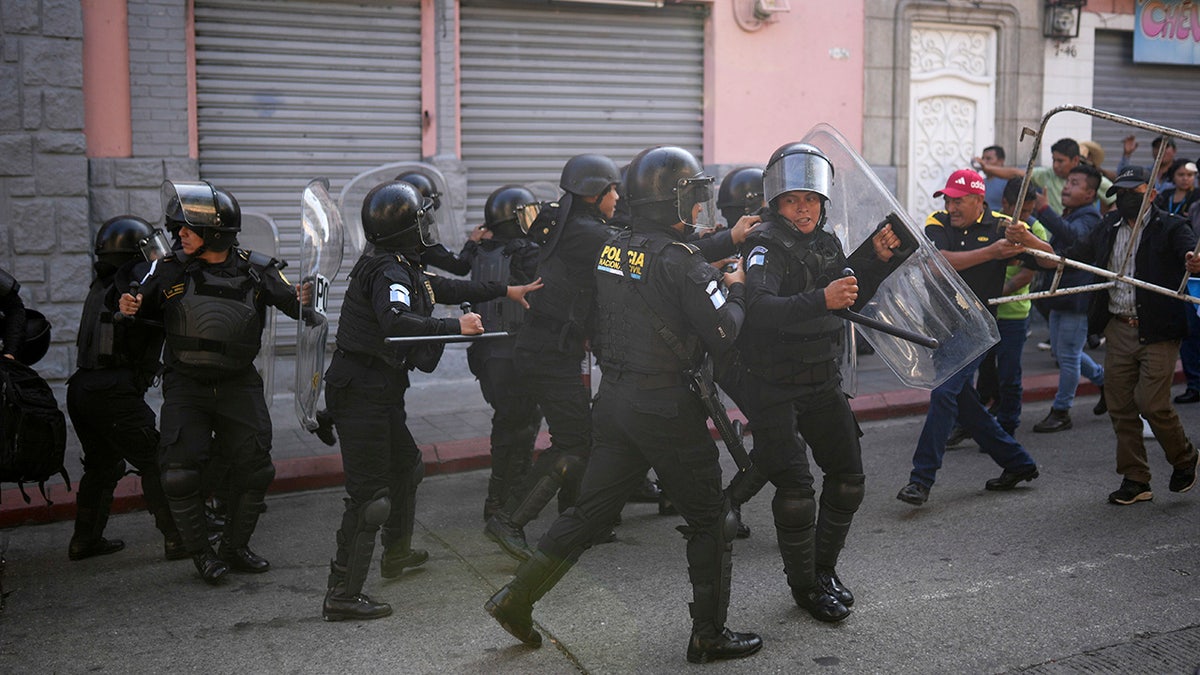
Police try to keep back supporters of Bernardo Arévalo who are protesting a delay in the start of the legislative session to swear-in new lawmakers on Arévalo’s Inauguration Day, outside Congress in Guatemala City on Sunday, Jan. 14, 2024. (AP Photo/Santiago Billy)
CLICK HERE TO GET THE FOX NEWS APP
Washington has gone further, sanctioning Guatemalan officials and private citizens suspected of undermining the country’s democracy.
On Thursday, U.S. Assistant Secretary of State for the Western Hemisphere Brian A. Nichols said the aggression toward Arévalo will not likely stop with his inauguration.
The Associated Press contributed to this report.
INTERNACIONAL
Gran Bretaña: murió el ex ministro de Defensa de Margaret Thatcher durante la guerra de Malvinas

Rechazaron su renuncia
Miloska, su amor yugoslavo
-
POLITICA3 días ago
Ricardo Jaime se entregó en Comodoro Py: cumplirá su condena por la tragedia de Once en prisión
-
POLITICA2 días ago
Javier Milei y el gabinete felicitaron a Donald Trump: “Puede contar con Argentina para llevar a cabo su tarea”
-
POLITICA1 día ago
El Gobierno advirtió que cerrará Aerolíneas Argentinas si los gremios no frenan las medidas de fuerza
-
INTERNACIONAL2 días ago
¿A qué hora se conocerán los resultados oficiales de las elecciones en Estados Unidos 2024?
-
ECONOMIA3 días ago
Elecciones EE.UU.: El ‘arma de doble filo’ que puede alargarse en el tiempo Por Investing.com
-
ECONOMIA3 días ago
Meta mantiene la prohibición de nuevos anuncios políticos tras las elecciones Por Investing.com

